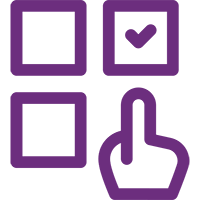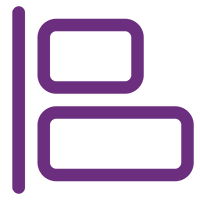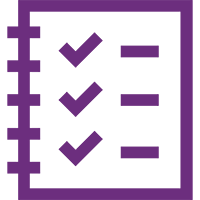We know that diversity, equity and inclusion needs span a vast range: executive coaching for your DEI leaders and DEI allies, coaching others on sensitive topics including DEI issues, and even training for your wider population on how your company approaches diversity, equity and inclusion. We have you covered on all those fronts, and crucially, we have a variety of DEI coaches who can deeply understand the needs and challenges of your employees around these issues.
Our diverse and expert coaches can support the leaders who are grappling with their own experience or those of other DEI employees, provide training in DEI issues for allies and others, or integrate topics of diversity and inclusion into the coaching of employees for whom this is a new conversation.
Challenging coaching calls for those with the compassion and expertise to handle to conversation.

Coaching for DEI Leaders and Allies
Expert, Certified, Diverse Coaches

We coach in the Diversity, Equity and Inclusion Space:
Senior leaders
DEI allies
Group programs that include DEI topics
Workshops on Equity and Inclusion
Keynotes on Ally-ship
Certified, experienced, diverse coaches
Our DEI Coaching Philosophy: Insight + Action = Results
Coach Selection Process
In order to deliver the most value to our clients and their companies, we believe that it’s critical that an executive chooses a coach whose style matches their personality—that’s why we encourage our clients to interview up to three of our coaches to guarantee the best fit.
Diverse, Experienced Coaches
Real Results
Convenience and Flexibility
The Arden Difference
The Power of the Arden Process

Selection
First things first: we set up an initial conversation to help determine the appropriate program for the executive, as well as set up interviews with the three coaches that are the best fit for their needs and goals. In this stage, we are looking to match the executive’s style with that of the coach to create a coaching relationship that delivers maximum results.

Alignment
At the start of each engagement, the coach, the executive, and their supervisor meet to determine the goals of the coaching. Because all of our executive coaching programs are results-driven, it’s critical to set appropriate goals and ensure that the executive, the supervisor, and the company can all realize the benefits of the coaching.

Assessment
When an executive enrolls in a program with the intent to change, measuring the ability and skill level at the outset is a critical first step in setting goals and building a plan to reach them. The coach will select from an array of assessments to select the tools best suited to help the executive gain insight into their unique style and potential areas for growth.

Work the Plan
With feedback from colleagues and a personalized development plan in place, the executive and the coach work through the strategy. They meet regularly to discuss challenges, best practices, and successes, with the coach helping the executive identify and understand their patterns, as well as focus on opportunities for improvement. At the midpoint of the partnership, we once again assess the executive’s progress through a meeting with their supervisor and course-correct, if needed. At the conclusion of the engagement, the executive, supervisor, and coach review the progress and identify any next steps necessary to continue the executive’s growth to ensure a long-term shift in behavior.
Executive Coaching and Leadership Blogs
Check List for Professional Development
by Neal Eisenstein Clients generally enter into coaching to work on one or two problematic areas in their communication, management or leadership. However, when we give ourselves permission to...
A Comprehensive Guide to Executive Coaching
The strategic use of executive coaching can be pivotal in the realm of professional development. This in-depth guide to executive coaching defines and breaks down the process of executive coaching,...
Imposter Syndrome at the Top: How High-Achieving Executives Can Overcome Self-Doubt
You’re one of the top executives in your organization. You’ve spent years or decades becoming a master of your craft and a reputable leader in your field. You've earned the respect of your peers,...
CEO Leadership Competencies For Scaling Up Companies
by Hien DeYoung, PCC In order for companies to viably scale up, CEOs must also scale up their leadership. It’s a heavy lift to expand the size of the team, evolve the product, increase market...
3 Effective Strategies for Leading Remote Teams
For roughly 22 million Americans, remote work is the new normal. While we can credit the rapid normalization of remote work environments to the COVID-19 pandemic, remote work remains just as...
Leading to Inspire: Mastering Coaching Strategies for Leadership Excellence – Part 1
by Julianna Hynes, Ph.D., PCC Leadership is an ever-evolving journey that demands continuous growth and adaptability. Often, when I work with leaders, one of their goals is to learn how to coach...
Vacation Strategy for Self-Care
by Fran LaMattina, PhD, MCC Over the years, I have become aware that many of us allow our vacation time to either slip away or not truly replenish us. In my early workdays, I was a part of this...
Microaggressions in the Workplace: What They Are and How to Address Them as a Leader
As a leader, your job is to cultivate a space where every team member feels valued and respected. This means fostering an environment where diverse perspectives are heard, ideas are openly shared,...
Embracing Change: 8 Steps to Redefining Your Reputation
by Claudia Beck, CPCC, MCC After spending three decades in the fast-paced corporate world, I transitioned into executive coaching. For 30 years in that high-pressure environment, I had carefully...









